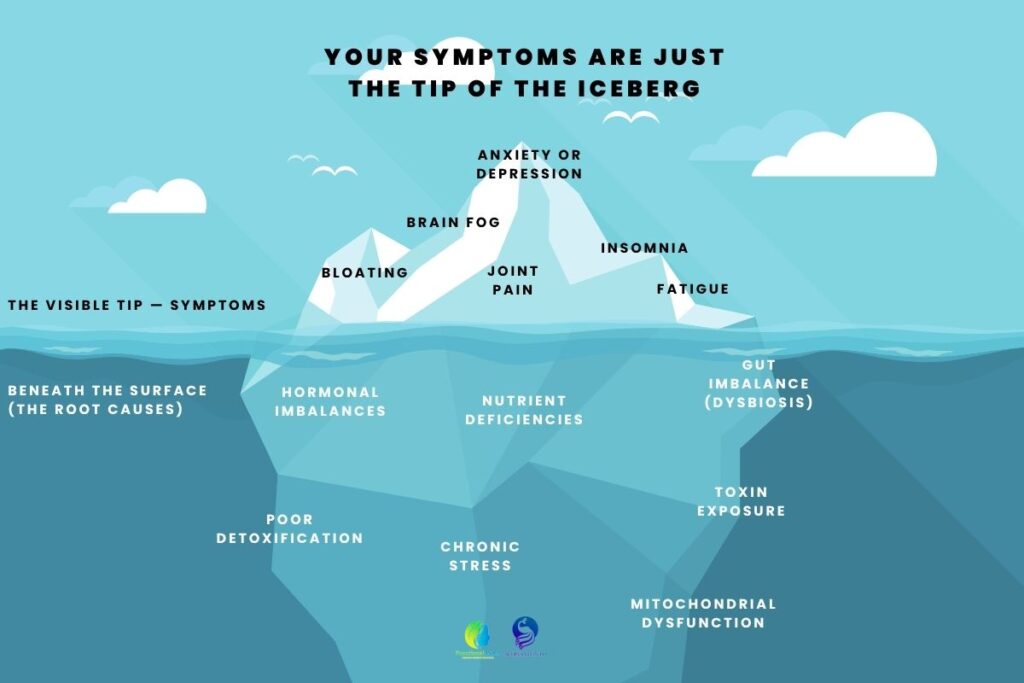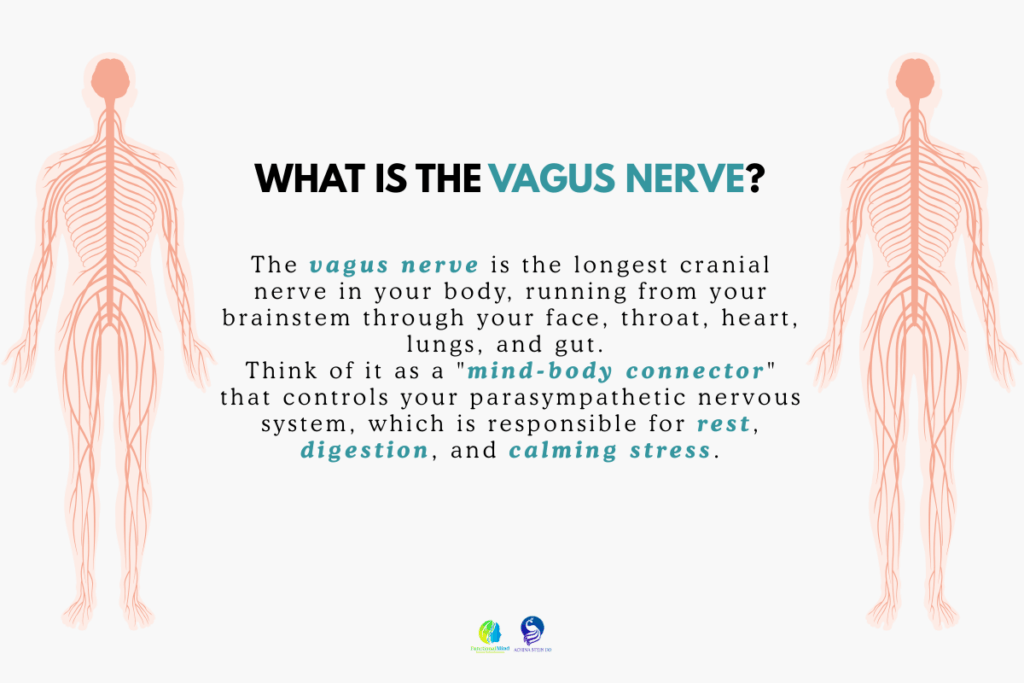Healthy Holiday Desserts You Can Enjoy Without Guilt
Healthy holiday desserts don’t have to mean bland flavors or strict deprivation. The holiday season often brings an overload of sugary treats that can disrupt blood sugar, increase inflammation, and negatively impact mood and energy. Fortunately, with the right ingredients, it’s possible to enjoy festive desserts that nourish both the body and the brain.

These healthy holiday dessert recipes focus on whole, nutrient-dense ingredients that support steady energy, brain health, and overall well-being—making it easier to enjoy seasonal treats without feeling weighed down afterward.
Why Choose Healthy Holiday Desserts?
Traditional holiday desserts are often high in refined sugar, processed flour, and inflammatory ingredients. These foods may contribute to:
- Blood sugar spikes and crashes
- Increased inflammation
- Fatigue and brain fog
- Mood changes
- Digestive discomfort
Healthy holiday desserts emphasize nutrient-dense ingredients, healthy fats, fiber, and natural sweetness, helping support metabolic balance, brain health, and sustained energy during the holidays.
Healthy Holiday Desserts: Avocado Chocolate Mousse
This rich and creamy chocolate dessert offers indulgence while supporting brain and heart health.
Ingredients
- 2 ripe avocados
- 1/4 cup unsweetened cocoa powder
- 3–4 tablespoons maple syrup
- 1 teaspoon vanilla extract
- Pinch of sea salt
Instructions
- Blend all ingredients in a food processor until smooth.
- Refrigerate for at least 1 hour before serving.
- Garnish with berries or cacao nibs if desired.
Health Benefits
- Healthy fats from avocado support brain and nervous system function
- Cocoa provides antioxidants for cognitive and cardiovascular health
- Naturally sweetened to support balanced blood sugar
Healthy Holiday Desserts: Spiced Nut Energy Bites
These no-bake treats are ideal for snacking or gifting during the holidays.
Ingredients
- 1 cup mixed nuts (almonds, walnuts, cashews)
- 1 cup pitted dates
- 1/4 teaspoon cinnamon
- 1/4 teaspoon nutmeg
- 1 teaspoon coconut oil (optional)
Instructions
- Blend ingredients until sticky.
- Roll into 1-inch balls.
- Refrigerate until firm.
Health Benefits
- Nuts provide protein and healthy fats for sustained energy
- Dates offer fiber and natural sweetness
- Cinnamon supports healthy blood sugar regulation
Healthy Holiday Desserts: Baked Cinnamon Apples
A warm and comforting dessert that feels indulgent while remaining nutrient-rich.
Ingredients
- 2 large apples, cored and halved
- 1 teaspoon cinnamon
- 2 teaspoons chopped walnuts
- Optional drizzle of honey or maple syrup
Instructions
- Preheat oven to 350°F (175°C).
- Place apples on a baking sheet.
- Sprinkle with cinnamon and walnuts.
- Bake for 20–25 minutes.
Health Benefits
- Apples provide fiber for gut and metabolic health
- Cinnamon helps support blood sugar balance
- Walnuts contain omega-3 fatty acids for brain health
Healthy Holiday Desserts: Turmeric & Coconut Bliss Balls
These golden treats combine anti-inflammatory spices with healthy fats.
Ingredients
- 1 cup shredded coconut
- 1/2 cup pitted dates
- 1 teaspoon turmeric powder
- 1/4 teaspoon ginger powder
- 1–2 teaspoons coconut oil (optional)
Instructions
- Blend ingredients until combined.
- Roll into bite-sized balls.
- Chill for 30 minutes before serving.
Health Benefits
- Turmeric and ginger support inflammation reduction
- Coconut provides healthy fats for steady energy
- Naturally sweetened to avoid refined sugar
Are Healthy Holiday Desserts Gluten-Free and Dairy-Free?
- Gluten-Free: Yes, all recipes are naturally gluten-free
- Dairy-Free: Yes, no dairy ingredients are used
These healthy holiday desserts are designed to support digestion, reduce inflammation, and promote overall wellness during the holiday season.
Enjoy Healthy Holiday Desserts Without Sacrificing Your Health
Healthy holiday desserts make it possible to celebrate without guilt, sugar crashes, or health imbalances. With thoughtful ingredient choices, desserts can support brain health, mood stability, and energy throughout the season.
📅 Book Your FREE 25-Minute Consultation
👉 https://fxnmind.com/free-consultation-with-achina
📞 Call Functional Mind LLC: 401-270-4541





 Most people think of brushing and flossing as basic daily habits to prevent cavities — but your oral health influences far more than your smile. Strong research now shows a significant link between oral health and brain health, revealing that the state of your mouth directly affects cognitive function, inflammation, and long-term brain wellness.
Most people think of brushing and flossing as basic daily habits to prevent cavities — but your oral health influences far more than your smile. Strong research now shows a significant link between oral health and brain health, revealing that the state of your mouth directly affects cognitive function, inflammation, and long-term brain wellness. Your mouth contains millions of bacteria. Some are helpful, but others can trigger inflammation when they grow out of balance. When harmful bacteria flourish due to gum disease, poor hygiene, or unresolved dental issues, they can enter the bloodstream and travel to the brain.
Your mouth contains millions of bacteria. Some are helpful, but others can trigger inflammation when they grow out of balance. When harmful bacteria flourish due to gum disease, poor hygiene, or unresolved dental issues, they can enter the bloodstream and travel to the brain.
 Improving your mouth is one of the most effective ways to protect your brain. Here are key steps:
Improving your mouth is one of the most effective ways to protect your brain. Here are key steps: Heart Rate Variability measures the slight variations in time between each heartbeat. Even if your heart beats 70 times per minute, the spacing between beats isn’t perfectly even — and that variability is healthy.
Heart Rate Variability measures the slight variations in time between each heartbeat. Even if your heart beats 70 times per minute, the spacing between beats isn’t perfectly even — and that variability is healthy. HRV varies from person to person, but here are general resting HRV ranges:
HRV varies from person to person, but here are general resting HRV ranges: HRV is closely connected to emotional balance and mental resilience. Low HRV is associated with:
HRV is closely connected to emotional balance and mental resilience. Low HRV is associated with: You can raise your HRV and strengthen your stress resilience with simple daily habits:
You can raise your HRV and strengthen your stress resilience with simple daily habits:





